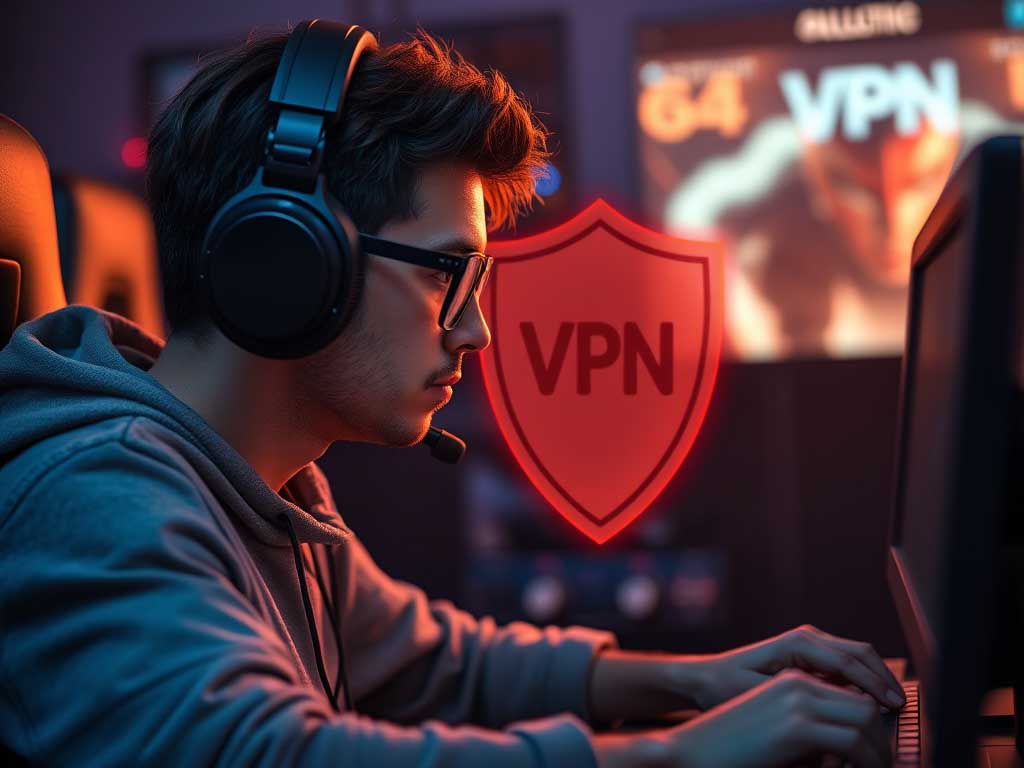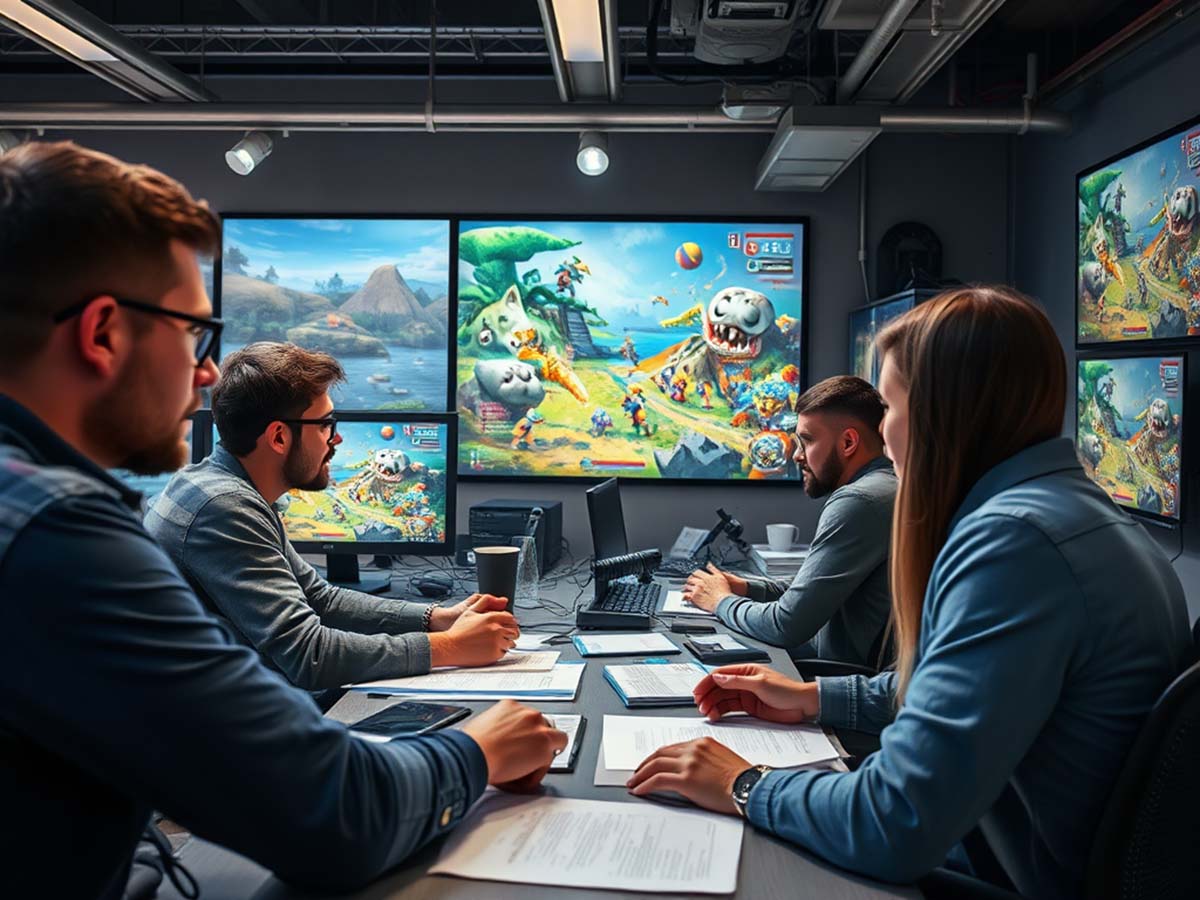Secure Game Sessions: Smart VPN Tips for Global Gamers
Winning in online gaming takes more than lightning reflexes or a powerful setup. Your connection must also be secure. In recent years, online threats targeting gamers have become more common. DDoS attacks, IP tracking, and bandwidth throttling have disrupted players around the world.
To stay safe and maintain reliable performance, a growing number of players are turning to Virtual Private Networks (VPNs). These tools do more than just protect privacy. They also support smoother gameplay—when used the right way. If you’re looking for the Best VPN for gaming, it’s worth choosing one built for speed, security, and low latency.
Why Security Matters More Than Ever
If you’ve ever been kicked out of a match or experienced sudden lag spikes, you know how frustrating it is. Unfortunately, many of these issues stem from deliberate attacks or interference. DDoS attacks, for instance, can flood your IP with traffic until your game crashes.
Other times, bad actors gather your IP information to dig up your location. In rare but serious cases, this can lead to threats or social engineering attempts. Gamers often underestimate how visible their personal data can be while online.
That’s where a VPN becomes useful. It doesn’t just mask your IP address—it assigns you a new one. This makes it harder for attackers to locate or track you. Instead of showing your real location, your connection looks like it’s coming from somewhere else entirely.
With fewer entry points for malicious activity, your gaming environment stays safer.
How a VPN Helps More Than You Might Expect
A VPN forms a secure tunnel between your device and the internet. All your game data travels through this encrypted path. That means even your internet provider can’t monitor your traffic in detail.
For gamers, this has several advantages.
Your ISP may throttle your speed during peak hours without telling you. A VPN can make your activity harder to identify, helping you avoid unfair slowdowns.
You can also switch to a server closer to your friends or teammates in different countries. This helps reduce ping and improve responsiveness.
Some VPNs even help block ads and tracking tools baked into game launchers or online platforms. These blockers improve load times and keep your gaming data more private.
With reduced packet loss, a consistent frame rate, and a clearer connection route, your games feel smoother—even during heavy traffic.
Finding the Right VPN for Gaming
Not every VPN is made for gaming. Some focus more on privacy and streaming, while others are better at speed and consistency.
When choosing one, keep an eye on these essential features:
Global Server Network: A wide range of servers gives you more choices and improves the odds of finding a low-ping connection wherever you are.
No-Log Policy: Avoid services that store records of your activity. Your gaming history shouldn’t be saved or sold.
Kill Switch: If your VPN drops for any reason, a kill switch disconnects your internet instantly to avoid exposing your IP.
Protocol Options: Look for support for modern and efficient protocols like WireGuard or OpenVPN. Each has its own balance between speed and stability.
Reading reviews and doing a short trial can help you see which service performs best with the games you play most often.
Easy VPN Setup in Just Minutes
You don’t need technical experience to get started. Most VPN providers make the process quick and simple.
Pick a plan based on how often you play. A monthly subscription works well if you want to try it out. Longer-term plans usually cost less per month.
Next, download the VPN app to your gaming device—whether that’s a PC, a console, or even your router. If your router supports VPN installation, you can protect every device in your home with one setup.
Log in with your account credentials, and you’ll see a list of available servers. Choose one that’s closest to your match region or your teammates.
Before entering any online lobby, turn on protective features like the kill switch. This ensures your identity stays private even if something goes wrong.
From start to finish, most setups take just a few minutes.
Smart Connection Tricks That Actually Work
To make sure your gaming connection stays fast, there are a few simple but powerful adjustments you can make.
Keep Everything Updated
Old firmware on your router or outdated drivers on your PC can cause issues. Make sure you update both regularly. This cuts down on unexpected slowdowns and random lag.
Test Your Protocols
WireGuard often gives better speeds on stable servers. OpenVPN can be more reliable when conditions vary. Switching between them lets you find what feels best for your current game or location.
Use Split Tunneling
Some VPN apps let you route only specific apps or games through the VPN. That way, things like voice chat or downloads use your regular connection, reducing overall load and latency.
Plug In with Ethernet
Even the latest Wi-Fi can struggle with signal drops. A wired connection gives you more stable speeds and fewer interruptions, especially during intense matches.
Following the Rules While Staying Protected
While VPNs offer many benefits, it’s still your responsibility to follow each game’s policies.
Some publishers restrict players from changing regions to access specific features or participate in events. Always check the service terms before switching to a different country server.
Also, just because your IP is hidden doesn’t mean you’re invisible. Avoid using VPNs to get around rules about in-game purchases or to run unauthorized scripts.
These actions could result in suspensions or bans, depending on the game. Using a VPN to protect yourself is fine—using it to cheat is not.
Common VPN Concerns from Gamers
Does using a VPN increase ping?
Yes, it can—but often by only a small amount. If you pick a nearby server, you might see just a 5 to 10 millisecond bump. That’s usually manageable and barely noticeable during play.
Can I trust free VPNs?
A few free services offer reliable performance, but they usually come with limits on speed or monthly data. Others log your activity or inject ads to make money. If you play regularly, paying for a subscription is a safer and more stable choice.
Will I get banned from a game for using a VPN?
In most cases, no. Bans are rare if you’re just using a VPN for security or connection stability. Just be careful not to break any rules related to region-locked content or matchmaking.
Can I protect more than one device at once?
Yes. If your VPN runs through your router, everything connected at home is protected. If not, install the VPN app separately on each device you want to use it on.
Keeping Your Sessions Safe and Smooth
Online games connect us with others across the world, but they also expose us to risks. While most players just want to enjoy the experience, a few use these spaces to disrupt or take advantage of others.
That’s why it helps to take control of your online safety. VPNs don’t just shield your IP address. They give you more ways to protect your data, maintain a stable connection, and enjoy the game the way it’s meant to be played.
From choosing the right provider to adjusting the right settings, small changes can have a big impact. Secure sessions aren’t just about privacy—they also lead to better performance, fewer headaches, and peace of mind while you play.
Whether you’re grinding ranks or playing casually with friends, a protected connection keeps your focus on the fun—not the fear of being booted or tracked.
VPNs aren’t tools for cheating or shortcuts—they’re part of a smart setup that respects both the rules of the game and your right to play safely. Used responsibly, they’re a helpful companion in any gamer’s toolkit.


